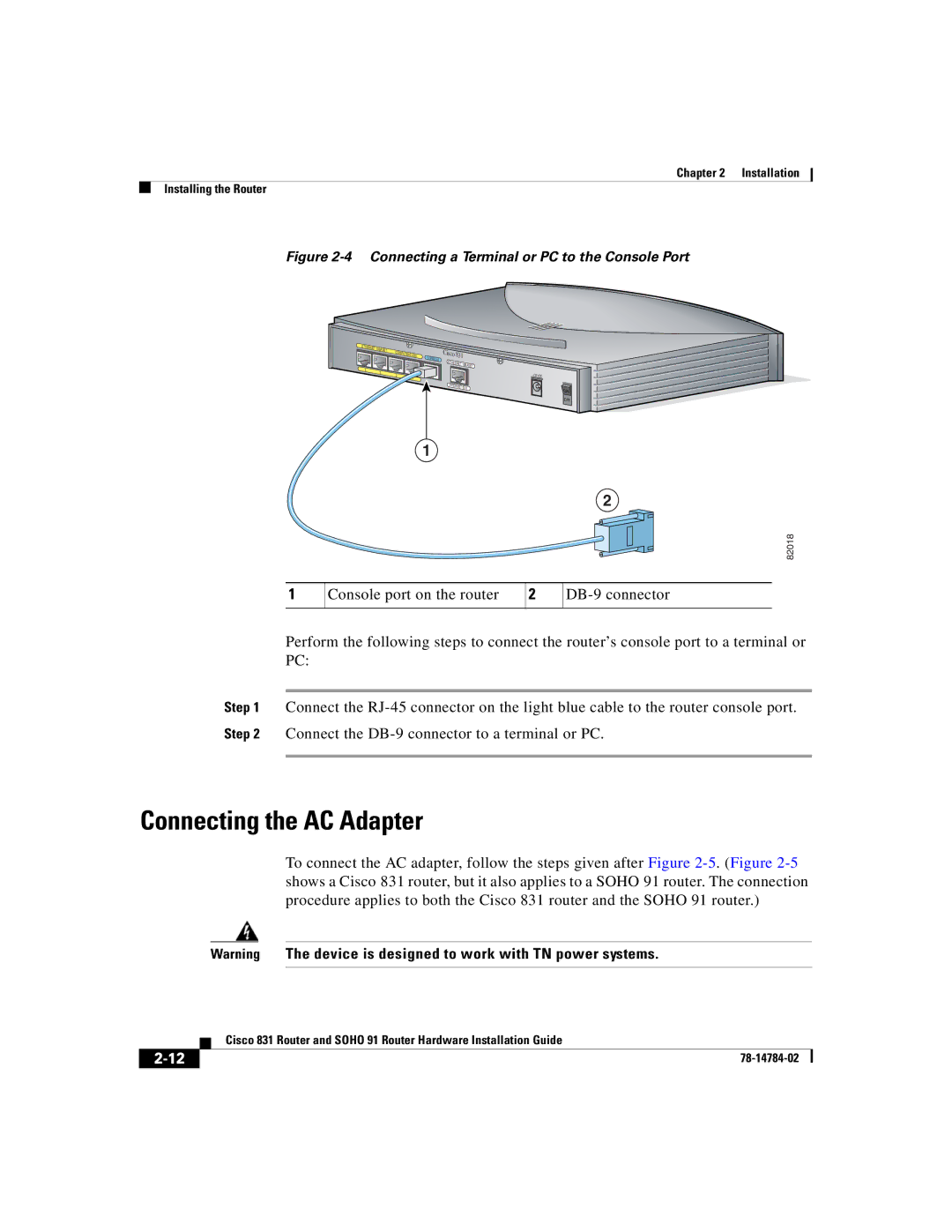Cisco 831 specifications
Cisco Systems has long been a key player in the networking hardware and software industry, providing solutions for both enterprises and small businesses. Among its numerous offerings, the Cisco 831 router stands out as a reliable tool designed predominantly for small to medium-sized businesses looking for robust connectivity and security features.The Cisco 831 is part of the Cisco Integrated Services Router (ISR) series and serves as an all-in-one solution for a variety of networking needs. This compact router packs a range of features that allow businesses to streamline their communications and improve operational efficiency. One of its primary components is its ability to deliver high-speed Internet access through various broadband connections, including DSL and cable. The router also supports both IPv4 and IPv6, ensuring compatibility with modern internet protocols.
One of the most notable features of the Cisco 831 is its integration of advanced security technologies. With built-in stateful inspection firewall capabilities, companies can protect their networks from external threats while maintaining ease of access for authorized users. Additionally, the router offers Virtual Private Network (VPN) support, allowing secure remote access for employees working from various locations.
Quality of Service (QoS) is another fundamental characteristic of the Cisco 831. It enables efficient traffic management by prioritizing critical applications, ensuring that bandwidth-sensitive activities, such as voice over IP (VoIP) and video conferencing, function without disruption. This feature is essential for organizations that rely on seamless communication to maintain productivity.
In terms of connectivity, the Cisco 831 is equipped with multiple Ethernet ports, allowing for easy network expansion. It also supports Power over Ethernet (PoE) capabilities, which enable the powering of IP phones and other devices directly through the network cable, eliminating the need for additional power outlets.
Configuring and managing the Cisco 831 is simplified through its user-friendly interface, which can be accessed via a web browser or command line. This ease of use is complemented by extensive support and resources provided by Cisco, helping IT administrators to effectively manage their networks.
In summary, the Cisco 831 router is a versatile and feature-rich networking solution tailored for small to medium-sized businesses. Its combination of robust security, quality of service prioritization, and ease of use makes it a formidable choice for organizations aiming to enhance their connectivity and protect their digital assets. As businesses continue to evolve in the digital landscape, devices like the Cisco 831 will remain pivotal in ensuring reliable and secure network operations.

